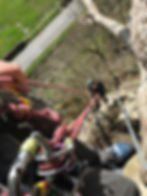5 top tips for assessments
- Dan Wilkinson
- Mar 5, 2018
- 2 min read
Presenting for an assessment can be a stressful task – I should know, I’ve put myself through plenty of them! I’ve also assessed many candidates for paddling, coaching and mountaineering awards and wished that I could have given them some advice before they presented themselves; so below are my 5 top tips for assessments!

1: Read the syllabus before booking an assessment.
This is the guidance for the assessors too, and allows everyone involved in the assessment process to be singing from the same sheet. If you are aware that you have gaps in your expected skill set or knowledge then addressing this prior to presenting for an award will ensure you have given yourself the best possible opportunity for success. All the Syllabus are available on the National Governing Bodies websites!
2: Bring your evidence with you!
If you need a first aid certificate, 40 quality mountain days, 6 progressive coaching sessions or other pieces of evidence then have them with you. If a logbook is needed, then ensure it is well presented and legible. This can be as simple as highlighting the entries that are relevant to the award, or ensuring that your DLOG entries are current and meet the stipulations for QMD’s.

3: The pre-requisites are there for a reason.
Assessors are looking for you to demonstrate that you have experience in the activity you are hoping to gain a qualification in, especially when it comes to leadership or coaching qualifications. This experience gives judgement, and all adventure sports awards require judgement to be able to operate in dynamic environments. Shortcutting the experience gaining can leads to gaps in your judgement that an assessor may pick up on.

4: Plan your date and apply early.
Jumping onto an assessment last minute because it’s cheap is not the reason to present for an assessment. By putting a date in your diary you set a target, give yourself time and opportunities to polish your performance and ensure you’re fully ready to present for an award, as well as finalise your logbook and prepare your evidence.

5: Get familiar with your kit and equipment in a variety of conditions.
I’ve run Summer ML assessments in week long stormy conditions in July, Advanced Water Kayak Leader awards in December in near freezing conditions, and Coach Assessments in 35’C. Ensuring you are comfortable in the conditions will allow you to perform to the best of your abilities and focus on the assessment, rather than your discomfort!

Dan Wilkinson is a holder of both the Mountain Instructor Certificate and a British Canoeing Level 5 (whitewater) Coach. He works half time for Joint Services across a multitude of adventure sport disciplines, and half time for himself at www.danwilkinson.org running personal skills, leadership and coaching courses.
















